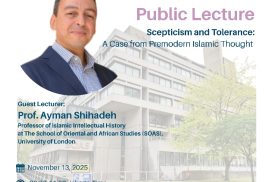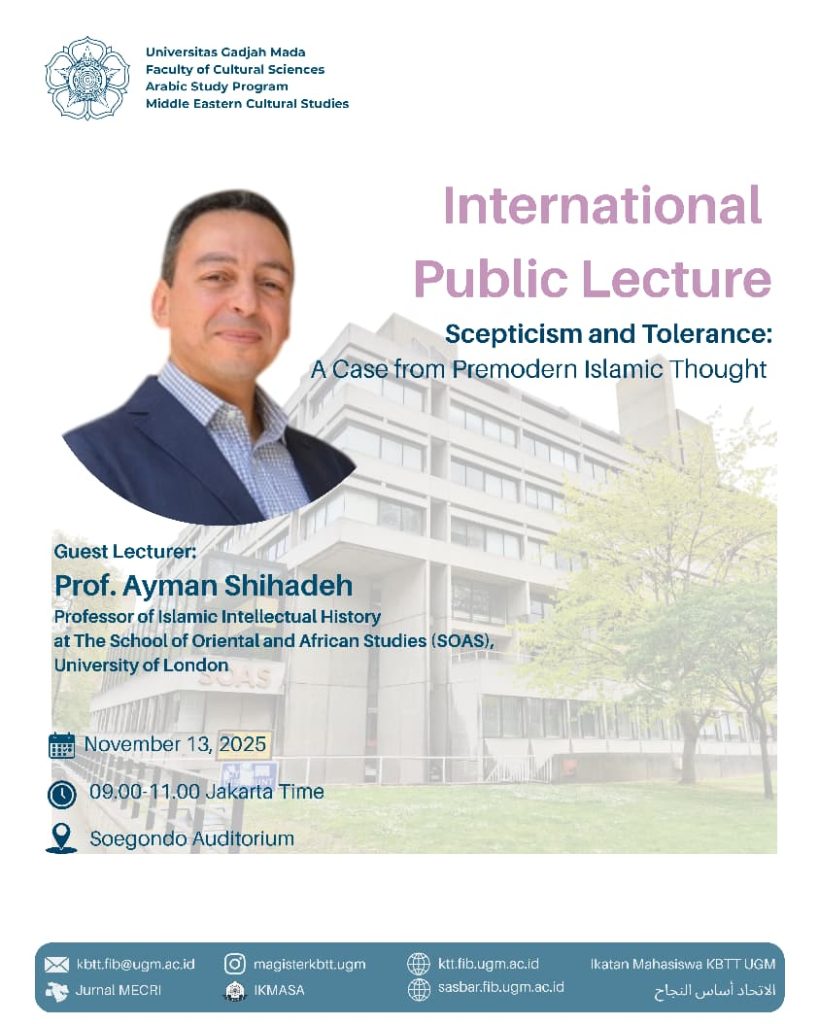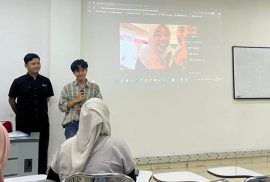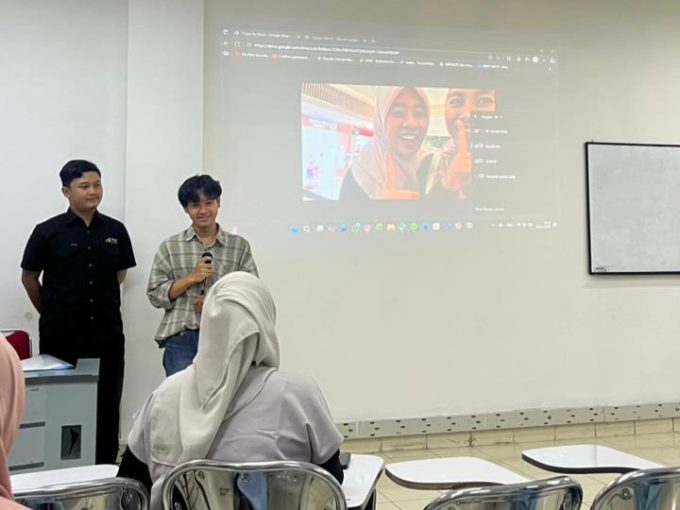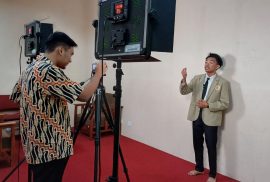UGM Arabic Study Program Participates in the Arabic Curriculum Standards Assessment Workshop at UIN Siber Syekh Nurjati Cirebon
AgendasBerita (inggris)Workshop Friday, 7 November 2025
UGM Arabic Study Program Participates in the Arabic Curriculum Standards Assessment Workshop at UIN Siber Syekh Nurjati Cirebon

West Java, October 29, 2025 – The Curriculum Team of the Arabic Study Program, Faculty of Cultural Sciences, Universitas Gadjah Mada (UGM), took part in the Curriculum Standards Assessment Workshop organized by UIN Siber Syekh Nurjati Cirebon. The event gathered 19 Arabic Language and Literature study programs from various universities under both the Ministry of Education, Culture, Research, and Technology and the Ministry of Religious Affairs.
Participating universities included Universitas Gadjah Mada, UIN Siber Syekh Nurjati Cirebon, UIN Sunan Kalijaga Yogyakarta, Universitas Hasanuddin, UIN Alauddin Makassar, Universitas Muslim Indonesia, Sekolah Tinggi Dirasat Islamiyah Imam Syafi’i Jember, STAI Riyadlul ‘Ulum Tasikmalaya, UIN Raden Fatah Palembang, UIN Raden Mas Said Surakarta, UIN Sunan Ampel Surabaya, UIN Sunan Gunung Djati, UIN Satu Tulungagung, Universitas Ahmad Dahlan, Universitas Nahdlatul Ulama Sunan Giri, Universitas Sumatera Utara, Universitas Al-Azhar Indonesia, UIN Sultan Maulana Hasanuddin Banten, and UIN Salatiga. This broad participation reflects a shared commitment to strengthening inter-institutional collaboration in shaping a modern and adaptive approach to Arabic language education in response to contemporary challenges.
The opening ceremony, held at the 8th floor auditorium of the SBSN Siber Building, was attended by faculty leaders and members of the Ittihad Aqsam al-Lughah al-‘Arabiyyah wa Adabiha (IQLAB) central board. In his address, Dr. Uki Sukiman (UIN Sunan Kalijaga Yogyakarta), Chairperson of IQLAB Indonesia, emphasized the growing importance of synergy among Arabic Language and Literature study programs in advancing both academic excellence and institutional development. The workshop was officially inaugurated by Dr. Wakhid Nashruddin, Vice Dean for Academic Affairs at UIN Siber Syekh Nurjati, who highlighted the urgency of curriculum evaluation as a strategic step to enhance graduate competitiveness.
The sessions continued with curriculum development and assessment discussions led by Haeruddin, M.A. (Universitas Hasanuddin), Head of the Curriculum and Quality Assurance Division at IQLAB, who presented the concept of Outcome-Based Education (OBE) and stressed the importance of continuous assessment in curriculum improvement.


On the second day, participants conducted self-assessments of their respective study programs and endorsed two key documents: the Curriculum Development Guidelines and the Curriculum Draft Assessment Manual. Both documents were signed by all participants and officially ratified by Dr. Uki Sukiman, M.Ag, Chairperson of IQLAB Indonesia, accompanied by Siti Aminah, S.S., M.A. from Universitas Gadjah Mada, who serves as IQLAB’s Secretary General.


Beyond the academic agenda, the workshop also served as a platform to foster camaraderie and collaboration among institutions. To close the event, participants explored Cirebon’s rich cultural heritage through visits to Kasepuhan Palace and Masjid Sang Cipta Rasa, followed by a culinary experience featuring the city’s signature dish, empal gentong, at Krucuk.
Through this workshop, IQLAB Indonesia and participating institutions reaffirmed their commitment to strengthening the quality of Arabic Language and Literature education in Indonesia, fostering inter-institutional partnerships, and aligning curricula with the evolving demands of the modern world and global educational standards.
Author: Siti Aminah, S.S.,M.A.
#SastraArabUGM
#IQLABIndonesia
#SDGs4:QualityEducation
#SDGs9:Industry,Innovation,andInfrastructure
#SDGs17:PartnershipsfortheGoals




